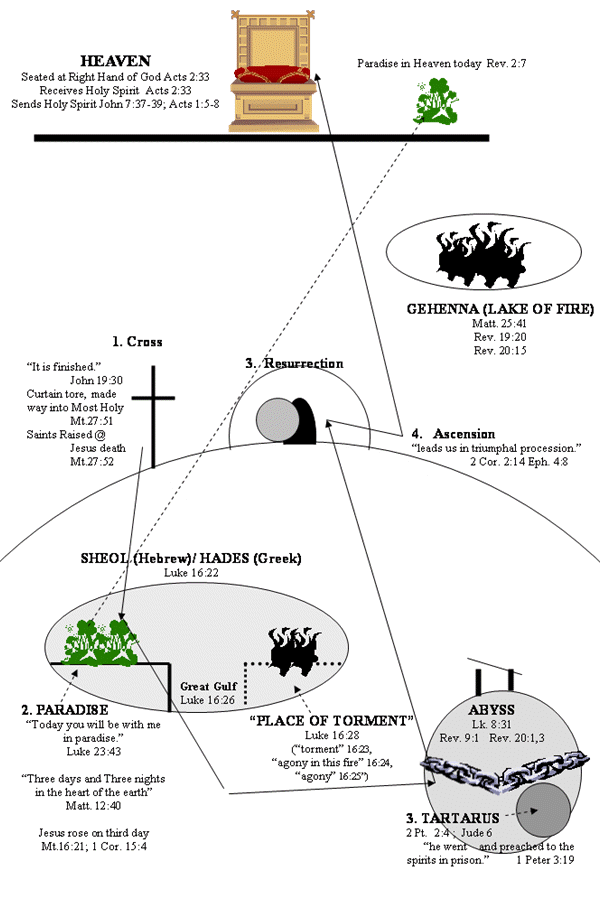First Samuel 28
1026 BC
28:1-2
Achish and the other four
Philistine Kings prepared to attack
Achish told David to join
with the Philistines in the battle
28:3
The fact that Samuel was dead
is pointed out.
This has already been
revealed in 25:1
There is no hope of turning
to him for guidance.
Saul had removed from the
land the:
1)
Mediums – the
word is “ob” and originally meant “sacrificial pit” which took on the
personality of the god of the underworld known as “dA-a-Bi”. A necromancer.
2)
Spiritists –
“yidd-oni” which literally means “one who has knowledge”. Most likely referring to knowledge of the
normally unknown spiritual realm through their knowledge of the occult
This may have been in obedience to Lev. 19:31; 20:6-7
and Deut. 18:11. Dt. 18:14-22 says use prophets of God and not the mediums
of 18:9-13
According to Isaiah 8:19
Mediums and Spiritits “consult the dead on behalf of the living.”
28:4
Philistines were planning an
invasion from the north and set up camp at Shunem. (see mapß)
Shunem is mentioned in a list
of Canaanite cities written by the Egytians and Thutmose III in the 1400’s BC
in papers known as the Amarna letters
28:5
Saul was afraid and filled with terror. This is the result of a life spent in rebellion to God.
28:6
Saul inquired of the Lord
every way he knew how but there was no answer. (Since Saul didn’t obey)
1)
dreams
2)
Urim
3)
Prophets
1 Chronicles 10:14 sums up that Saul did not inquire of the LORD. Maybe because his inquiring was of such a worthless nature that it was considered not inquiring at all.
28:7
Saul asks for a woman who is
a medium.
28:8
The attendants either have no
trouble finding one or they already know where one is.
There is a medium at Endor (see mapß)
Saul would have had to sneak pass the Philistine army stationed at Shunem in order to get from Gilboa to Endor 16 miles away.
Mount Gilboa – 10 miles south-southeast of Shunem.
“With
a heavy heart Saul engaged his enemies
the following day. Overpowered by enourmous odds, he retreated from the plain
to the heights of
28:8
“Consult” is the Hebrew word “qsm” and is translated othere places as “diviners” and “divinationis”
28:9
28:10
The last time Saul uttered the LORD’s name.
28:11
28:12
Questions concerning the bring up of Samuel:
1) Did the woman actually bring Samuel up? Yes. He speaks Samuel’s words and they are accurate.
2) Was the woman deceiving and creating a delusion? Apparently not since she was scared when the Lord and Samuel interrupted her vision.
3) Was this a demon masquerading as Samuel? No! The woman would have been used to this and the demon would not have spoken the full word of God in all its accuracy.
4) If it was Samuel was it the power of the necromancer or God’s power? The woman has power in the underworld (demonic world) but in this case God interrupts and takes over the vision.
5) Did
God allow it or did God cause it? Although God has forbidden
There is a mystery here in understanding exactly what happened. Even the rabbis explained it like this: “She did what she did, and she said what she said, and raised him.”
Saul was disguised but the woman saw through it when she entered into the spiritual realm.
The woman appears to have lost control of the situation and cried out in fear.
Saul has entered into witchcraft or divination. It is interesting that Samuel had said after the Amalekite episode that “rebellion is as the sin of witchcraft.” (15:23)
Something “real” was happening here since the woman can now perceive that Saul is in disquise.
28:13
Saul (afraid of Philistines and soon to fear Samuel’s words) tells the woman not to be afraid.
Saul does not see Samuel and it appears he has to ask the woman what she sees and hears.
She calls Samuel “a spirit” or “elohim” – (literally “a
strong one”) – “a god”. This was used to refer to judges and leaders in
28:14
Samuel has on the robe of a prophet. The type of robe that Saul tore the hem (The hem represents Samuel’s status and authority as a prophet)
28:15
The woman (serving as a medium) probably spoke to Saul for Samuel
If Saul had listened and obeyed Samuel during his life this moment would not have been happening.
28:16-19
These words agree with what Saul said earlier.
a) Samuel refers to the Lord 7 times.
b) Samuel alludes to previous statements and situations associated with him and Saul
c) Samuel’s words come true and are precise.
The phrase “The Lord has torn the kingdom out of your hands and given it to one of your neighbors - to one better than you” is exactly what was said by Samuel in 15:28 except “- one better than you” is replaced by “- to David.”
Verse 18 gives two reasons for rejecting Saul:
1) Saul did not obey the Lord
2) Saul did not carry out the Lord’s fierce wrath against the Amalekites.
Verse 19 is the fulfillment of what Samuel warned
28:20
There is no peace away from God.
1) without God Saul feared the Philistines
2) without God Saul feared God’s word and judgment
28:24
The stables where usually part of the house and so the woman “had a fattened calf at the house.”
They then leave into the night.
This is a Chart of
the Underworld
